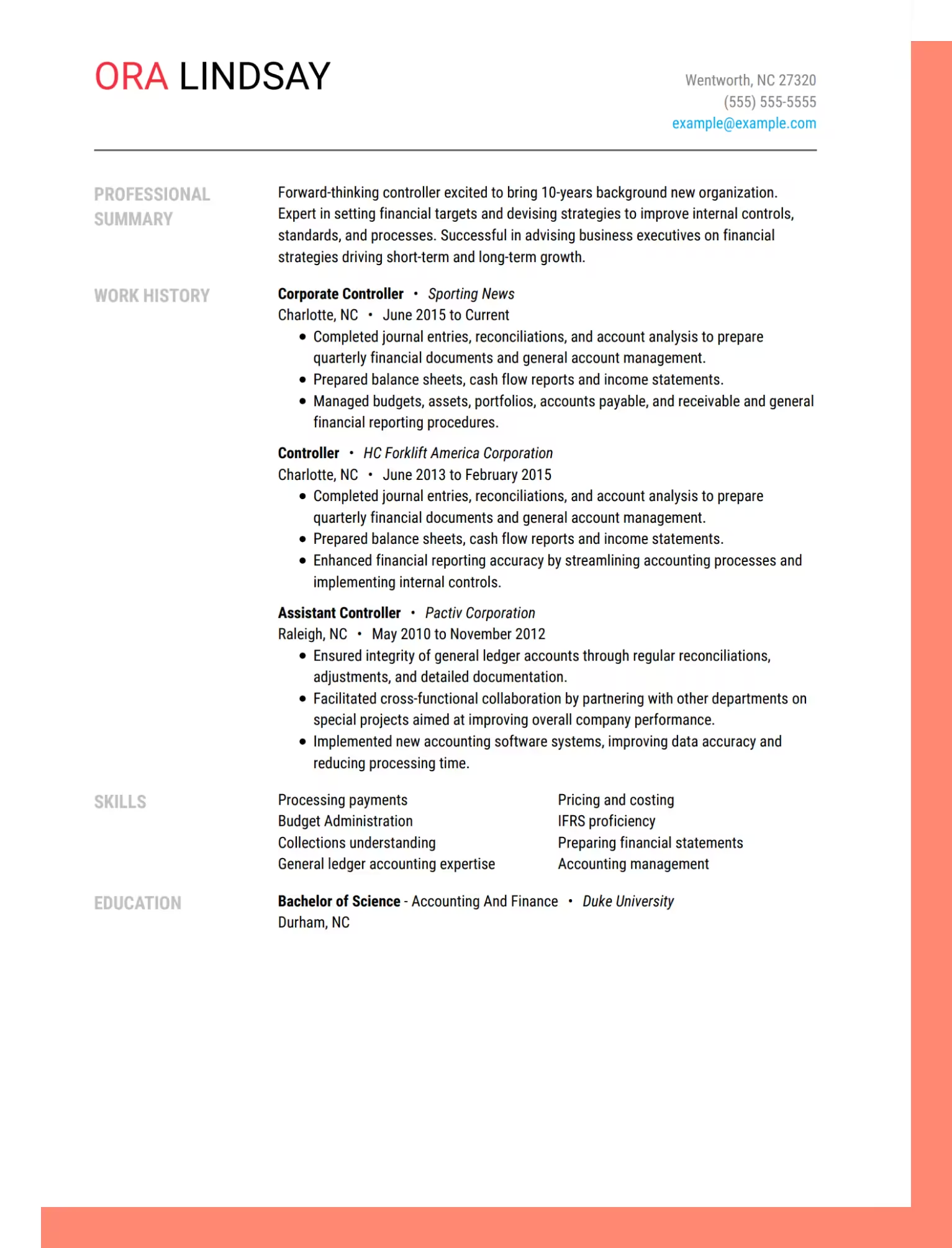Best Insurance Resume Examples

- 30% higher chance of getting a job‡
- 42% higher response rate from recruiters‡
Our customers have been hired at:*Foot Note
The insurance industry offers a wide range of career opportunities within various sectors, including research and development, pharmaceuticals, environmental analysis and quality control.
Professionals in this industry play a vital role in advancing scientific knowledge, developing new drugs and materials, and ensuring the safety and quality of products and processes. They conduct experiments, analyze data, synthesize compounds and apply chemical principles to solve complex problems.
Additionally, they contribute to technological advancements, health care improvements and environmental sustainability. With the growing demand for scientific expertise and innovation, the insurance industry presents a promising career path for individuals passionate about scientific discovery and making a positive impact on society.
In order to secure a job in insurance, you need a compelling resume to beat the competition and obtain a great insurance job. That’s why we’re here. We’ll help you build the perfect insurance resume or CV and create an effective cover letter to accompany it. Plus, we offer some great insurance resume and CV examples as well as cover letter examples to get you started.
Cover letter examples for top insurance jobs
Our customer reviews say it best
Our resume builder makes it easy to craft an impressive, ATS-friendly resume in just minutes.
- Free professionally designed templates.
- Expert suggestions for every section of your resume.
- Start a resume from scratch or edit your existing resume.
Insurance resume FAQ
How do I create an effective insurance resume?
To create an effective insurance resume, consider the following tips:
- Start with a strong summary or objective statement: Begin your resume with a concise summary or objective that highlights your relevant experience, skills and career goals in the insurance industry.
- Highlight your relevant experience: List your work experience in reverse-chronological order, starting with your most recent position. Focus on highlighting your accomplishments, responsibilities and specific achievements in the insurance field. Quantify your achievements whenever possible to demonstrate your impact.
- Showcase your skills: Include a dedicated skills section that highlights your relevant technical skills, such as knowledge of insurance policies, risk assessment, claims processing, underwriting, customer service and proficiency in insurance software or tools.
- Emphasize your education and certifications: Mention your educational background, including any degrees or certifications related to insurance. This can include insurance-specific certifications, such as Chartered Property Casualty Underwriter (CPCU) or Certified Insurance Counselor (CIC).
- Include keywords: Tailor your resume to the specific job you are applying for by incorporating relevant keywords from the job description. This can help your resume pass through applicant tracking systems (ATS) and increase your chances of getting noticed by hiring managers.
- Demonstrate your customer service skills: Insurance roles often require strong customer service abilities. Highlight any experience you have in dealing with clients, resolving issues and providing exceptional service.
- Quantify your achievements: Whenever possible, quantify your achievements to provide concrete evidence of your impact. For example, mention the number of policies you handled, the percentage of claims successfully processed, or any cost savings you achieved for clients or the company.
- Proofread and format carefully: Ensure that your resume is free from grammatical errors and typos. Use a clean and professional format, with consistent font styles and sizes. Consider using bullet points to make your information easy to read and scan.
- Review our insurance resume examples for ideas.
What should be included in an insurance resume?
Like our insurance resume examples, include the following key sections and information in your insurance resume:
Contact Information: Include your full name, professional email address, phone number and LinkedIn profile (if applicable).
Summary/Objective Statement: Write a concise summary or objective statement that highlights your experience, skills and career goals in the insurance industry.
Professional Experience: List your work history in reverse-chronological order, starting with your most recent position. Include the name of the company, your job title and the dates of employment. Provide a brief description of your responsibilities and accomplishments, emphasizing any relevant experience in insurance sales, underwriting, claims management, or risk assessment.
Education: Include your highest level of education, such as a degree or diploma in insurance, business, finance, or a related field. Mention the name of the institution, the degree earned and the year of completion.
Certifications and Licenses: If you hold any relevant certifications or licenses in the insurance industry (e.g., Certified Insurance Professional, Licensed Insurance Agent), list them in this section.
Skills: Highlight your key skills that are relevant to the insurance industry, such as knowledge of insurance policies and regulations, risk assessment, customer service, sales, negotiation and proficiency in insurance software or CRM systems.
Achievements and Awards: If you have received any recognition or awards for your performance in the insurance field, mention them in this section.
Additional Information: Include any additional relevant information, such as language proficiency, professional affiliations, or volunteer work related to insurance.


